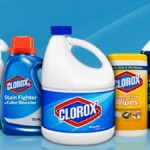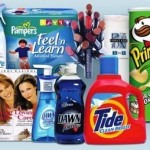 London / Rotterdam – Unilever’s commitment to put sustainable and equitable growth at the heart of its business model is helping to drive increased sales while reducing costs and risks, according to the second Unilever Sustainable Living Plan Progress Report published on April 22.
London / Rotterdam – Unilever’s commitment to put sustainable and equitable growth at the heart of its business model is helping to drive increased sales while reducing costs and risks, according to the second Unilever Sustainable Living Plan Progress Report published on April 22.
Unilever’s brands that have made sustainability central to their brand proposition or product innovation have accelerated sales during 2012:
- Lifebuoy soap, which has increased its hand-washing education programmes, has seen double digit growth in each of the last three years;
- Dry shampoos such as TRESemmé and Dove, which result in 90% less greenhouse gas emissions compared to washing hair in heated water, grew by nearly 20% in 2012; and
- Calorie-controlled Max and Paddle Pop children’s ice creams grew high double digit in 2012.
Unilever is also accelerating the integration of sustainability into the heart of many of its biggest brands. For example, Dove, its largest personal care brand with sales of over €3 billion, redesigned its self esteem programme for young people in 2012 to further strengthen its engagement with consumers by helping them look and feel their best. Another example comes from Unilever’s biggest brand, Knorr, which launched its first product with a ‘sustainably grown’ label on pack, with more to come.
At the same time, eco-efficiencies in Unilever factories from reducing energy, water, materials and waste have enabled the company to take over €300 million out of the system since 2008. The company has also reduced risk at a time of volatility in food commodity prices by increasing its purchases of agricultural raw materials from sustainable sources from 14% in 2010 to 36% in 2012.
Paul Polman, CEO of Unilever, said, “Sustainability is contributing to our virtuous circle of growth. The more our products meet social needs and help people live sustainably, the more popular our brands become and the more we grow. And the more efficient we are at managing resources such as energy and raw materials, the more we lower our costs and reduce the risks to our business and the more we are able to invest in sustainable innovation and brands.”
Unilever Sustainable Living Plan 2nd Year Progress
In 2010 Unilever set three big goals, all to be achieved by 2020:
- Help more than a billion people take action to improve their health and well-being;
- Source 100% of agricultural raw materials sustainably;
- Halve the environmental footprint of its products across the value chain.
Two years in to its ten-year Unilever Sustainable Living Plan, Unilever reports solid progress on two of its three big goals.
Help more than a billion people take action to improve their health and well-being
The company has reached 224 million people with programmes to reduce diarrhoeal disease through hand-washing with soap, provide safe drinking water, promote oral health and improve young people’s self-esteem. Lifebuoy soap reached 71 million people in 16 countries in 2012 – five times as many people as in 2010.
Source 100% of agricultural raw materials sustainably
Unilever now buys over a third (36%) of its agricultural raw materials from sustainable sources, with particular progress in palm oil, sugar, cocoa, vegetables and sunflower oil. They have also now helped to train 450,000 tea farmers in sustainable practices, of whom over 300,000 have achieved Rainforest Alliance certification.
Halve the environmental footprint of its products across the value chain
Unilever is making good progress in areas it can control. Between 2008-2012, greenhouse gas emissions from energy in manufacturing have been cut by nearly a third and manufacturing waste has halved. Over half of Unilever’s 252 manufacturing sites around the world now send zero non-hazardous waste to landfill, and the company has set itself a new target of extending this to all its factories by 2015. However, its own manufacturing impacts account for only a small part of the total environmental footprint of Unilever’s products in the total value chain – just 4% of its greenhouse gas (GHG) footprint for example. The majority of Unilever’s product footprint is in the sourcing of raw materials (25% of its GHG footprint) and in the way consumers cook, clean and wash with the products (68% of its GHG footprint). One of the biggest challenges remains how Unilever encourage the consumers to use its products more sustainably at home.
Although there is considerable progress, the company also faces challenges which it cannot solve alone. To reach its goals and achieve large scale change, Unilever believes even more collaboration is needed between companies, governments, NGOs and consumers. Among the areas where the company would welcome more cross-sector collaboration are: reducing and eliminating deforestation associated with soy, palm oil, beef, pulp and paper by 2020; integrating hygiene behaviour change into national health policies and education curricula; linking more smallholder farmers into food supply chains; and building infrastructure to promote waste recycling and recovery.
Helping consumers change their behaviour to live more sustainably is also key. In the absence of major framework changes by governments, the company is tackling this in a number of ways, from driving habit change through packaging solutions, such as single dose laundry detergent capsules which make it easier for consumers to dose accurately, to working with others such as retailers and civil society organisations to encourage shoppers to make sustainable choices at the supermarket and in the home. In addition, Unilever is leveraging its scale and reach to work with its many suppliers across the value chain to instil sustainable practices.
Paul Polman said, “The world continues to face big challenges. The lack of access of many to food, nutrition, basic hygiene and sanitation, clean drinking water or a decent job should be a concern to all of us. We firmly believe business has a big role to play in striving for more equitable and sustainable growth, but large-scale change will only come about if there is real collaboration between companies, governments and NGOs across all these areas.”
Source: Unilever.















